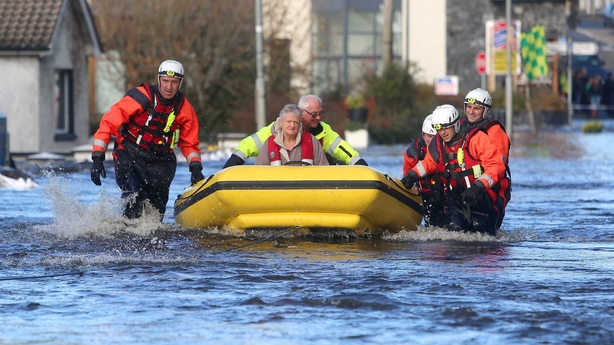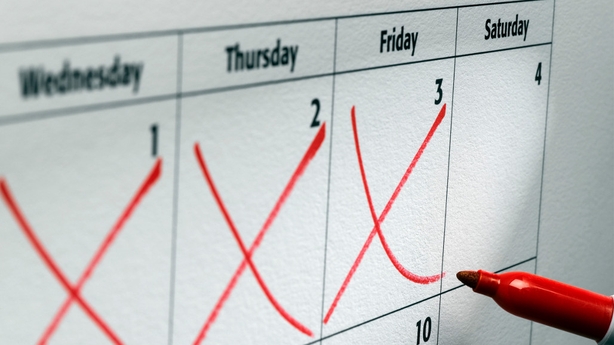The Dáil returns today after the Christmas break. But it is not really a return to business as usual. The focus is firmly on the impending election.
By Conor McMorrow, RTÉ Political Staff
Taoiseach Enda Kenny said on Monday that he knows when the election will be. He said "in early spring" - but he would not go any further.
The smart money is on the end of February, most likely on Friday 26. Then again a lot of so-called smart money was lost last October when conventional wisdom pointed to a November election.
The thinking behind the 26 February date is that Mr Kenny will give the Labour Party space to have its party conference on Saturday, 30 January in Mullingar and will then dissolve the Dáil the following Tuesday, 2 February.
Fianna Fáil's Ard Fheis takes place this Saturday in Citywest, Dublin and Fine Gael's is on the following weekend in the same venue. The Dáil also has to have a debate on the banking inquiry report.
However, a legal challenge to this report could see that debate averted, paving the way for the election. One Fine Gael TD said yesterday: "What are we hanging around for if this banking inquiry debate is not going to happen? We are ready and we are canvassing already. The posters are all ready since November. Waiting around for a party conference is not worth it."
Floods were the dominant story over the holidays and they look set to dominate proceedings today. Starting at 1pm, officials from the Department of Social Protection will go before the Oireachtas Education and Social Protection Committee to discuss the Humanitarian Assistance Scheme for flooding.

In the Dáil chamber, almost six hours has been allotted today to hear statements on the flooding from TDs. The late US politician Tip O'Neill is credited with the overused phrase "all politics is local" and the debate on flooding will certainly demonstrate this as TDs in election mode strive to highlight the plight of their constituents on the national stage.
Sinn Féin will table a debate tomorrow focusing on patients waiting on trolleys in hospital emergency departments.
According to the office of the Government Chief Whip, a number of pieces of legislation are almost complete and could be passed before the Dáil dissolves. Among them are the Criminal Justice (Spent Convictions) Bill, which would wipe clean minor offences from a person's record after a certain period of time, and the National Tourism Development Authority Bill, which would allow various tourism bodies to spend more on capital projects, may also be enacted.
All of these intentions will, of course, go out the window the minute the Taoiseach goes to Áras an Uachtaráin.

The election date
On the election date, the 31st Dáil first met on 9 March 2011 so the last day for dissolution, by our reckoning would be 8 March 2016, according to the Department of the Environment.
"The Electoral Act 1992 provides that the polling day shall be no earlier than 18 days and no later than 25 days (disregarding excluded days – Sundays, Good Friday, public holidays) after the issue of the election writ. The writ is usually issued on the day of dissolution of the Dáil.
"So under the Electoral Act the earliest date for a general election, in the case of the 31st Dáil being dissolved on the last day of its five-year term, would by our reckoning be 1 April and the latest would be 9 April, the 32nd day after the dissolution of the Dáil.
"However, Article 16.3.2 of the Constitution provides that a general election shall take place not later than 30 days after a dissolution of the Dáil. That would bring us to 7 April."

